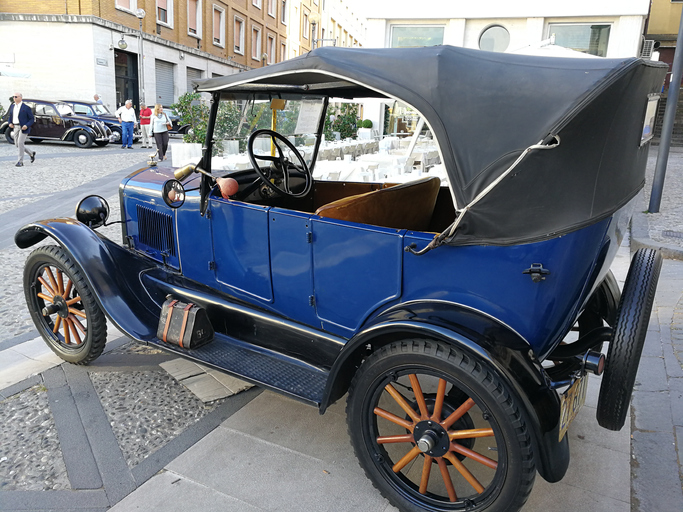Takeaway
My first car carried me through many phases of life—undergrad through medical school. It was my only constant as life changed tremendously over the years. It always helped me marvel and connect the dots of life every time I looked at the “rearview mirror.”
Lifelong learning in clinical excellence | October 11, 2019 | <1 min read
Highlights
I got a lesson in communication, fuel mechanics, learning to live down embarrassment, and ultimately that you only get out of life (or car) what you put into it.
Rebecca Hamburger, Medical Student, Central Michigan University College of Medicine
My first car was a 1981 Monte Carlo. I learned with the new found freedom that a car brings it also comes with a lot of responsibility.
Mike Crocetti, MD, Johns Hopkins Community Physicians
My first car was my father’s cast-off 1938 green Ford.
William Greenough, MD, Johns Hopkins University School of Medicine
Reliability doesn't have to be fancy, expensive, or trendy.
Panagis Galiatsatos, MD, Johns Hopkins University School of Medicine
My Mitsubishi Lancer carried me through many phases of life—undergrad through medical school. It was my only constant as life changed tremendously over the years. It always helped me marvel and connect the dots of life every time I looked at the "rearview mirror."
Sam Kant, MD, Johns Hopkins University School of Medicine
My light blue Ford Escort station wagon taught me that getting things done is more important than how you look while you are accomplishing them.
Laura Hanyok, MD, Johns Hopkins University School of Medicine
My first car, shared with twin brother Billy, was a pale blue Model T Ford cop with a rumble seat.
Randy Barker, MD, Johns Hopkins University School of Medicine
1961 Oldsmobile Cutlass F85. Never try to outrun a car tailgating you, especially if it's a police car.
Dave Kern, MD, Johns Hopkins University School of Medicine
I had a “very used” 1976 Plymouth Volare. This car’s design gave it a very large blindspot. This was a handy excuse for my accidents and many near accidents. My Volare made me understand that I too had big blind spots (related my character, skills, and approaches) and that I needed to seek out and listen to feedback from others.
Scott Wright, MD, Johns Hopkins University School of Medicine
I grew up in New York City without a car and didn't get my first car until I was 24. I paid for my 1984 Toyota Corolla with cash I had saved from summer jobs over the previous 8 years. I regarded it as a luxury, took really great care of it, and drove it 200,000 miles.
Mike Fingerhood, MD, Johns Hopkins University School of Medicine


